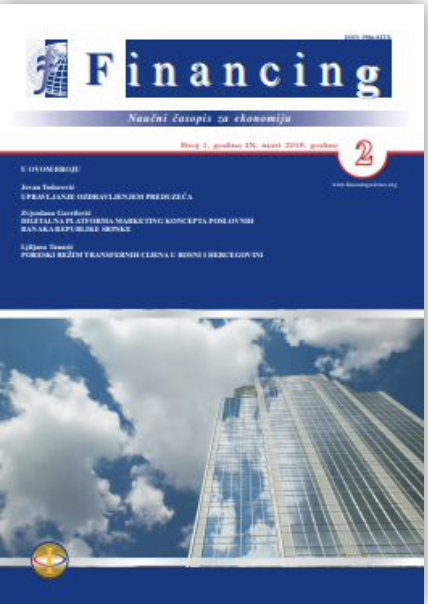Okunov zakon u zemljama članicama evrozone (2000—2020): empirijska analiza
Okun’s law in the member countries of the Eurozone (2000-2020): Empirical analysis
Author(s): Slaviša Kovačević, Drago Kurušić, Dragan PetrovićSubject(s): Economy, National Economy, Labor relations, Economic policy
Published by: Finrar d.o.o Banja Luka
Keywords: economic growth; the Okun’s law; gross domestic product; unemployment; the Eurozone;
Summary/Abstract: Achieving a high level of economic growth with the highest possible employment has always been the center of macroeconomic research. A significant contribution in macroeconomic research was achieved by the connection explained by the Okun’s law, which targets the relationship between domestic product and unemployment at the level of one economy. Since the definition of this law until today, there have been numerous researches and studies whose purpose is to investigate the existence and validity of the relationship between GDP and unemployment. The subject of this research is to investigate the effect of the Okun’s law in the member countries of the Eurozone in the period from 2000 to 2020. The goal of the research is to quantify the relationship between unemployment and GDP at the national level of the selected economies. In the research, we used the Ordinary Least Squares (OLS) method in order to determine the value of the Okun’s coefficient for each individual economy. The results show that in most countries the relationship between real growth and unemployment is negative and statistically significant, while the coefficients vary between countries.
Journal: Financing - naučni časopis za ekonomiju
- Issue Year: 13/2022
- Issue No: 3
- Page Range: 33-44
- Page Count: 12
- Language: English, Serbian

